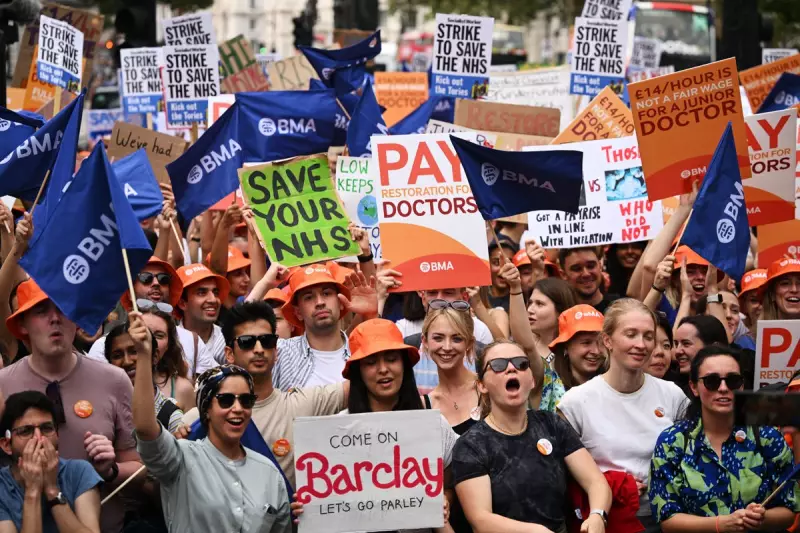
The already strained relationship between the government and NHS junior doctors has shattered completely, with the British Medical Association (BMA) announcing the longest continuous strike in health service history.
The dramatic escalation comes after what the BMA describes as "a total breakdown in negotiations" with Health Secretary Steve Barclay. Doctors' leaders claim the government failed to present any credible offer to address years of real-terms pay cuts that have left junior doctors' salaries diminished by over 26% since 2008.
Unprecedented Industrial Action
From 7am on September 19th until 7am on September 23rd, junior doctors across England will stage a full walkout—a crushing five-day strike that will force the cancellation of tens of thousands of appointments and procedures. This follows their recent 96-hour action in April, which already caused massive disruption.
Dr. Robert Laurenson and Dr. Vivek Trivedi, co-chairs of the BMA's junior doctors committee, expressed their frustration: "We were more than willing to suspend the strikes had the government presented any meaningful proposal. Instead, we were met with empty promises and no tangible offer."
Government's Stance and mounting pressure
The Department of Health and Social Care maintains that a 5% pay increase, recommended by the independent Review Body on Doctors' and Dentists' Remuneration (DDRB), represents a "fair settlement." A spokesperson stated: "Further strikes will only jeopardise patient care and increase waiting lists."
This position is increasingly isolating the government, as even the DDRB's own members have reportedly expressed concerns that their recommendations were constrained by the government's narrow remit, failing to address the true scale of the pay erosion.
A Healthcare System on the Brink
The impending strike action threatens to plunge an already overstretched NHS into deeper crisis. Hospital leaders are facing the grim task of prioritising emergency and critical care while postponing vast numbers of routine treatments.
With both sides entrenched in their positions and no further talks scheduled, patients across England are set to bear the brunt of this bitter stalemate. The September strike could mark a devastating new chapter in the ongoing battle over the future of the NHS and its workforce.





